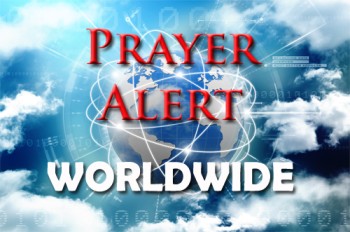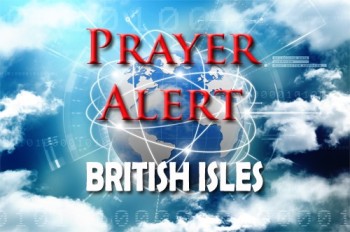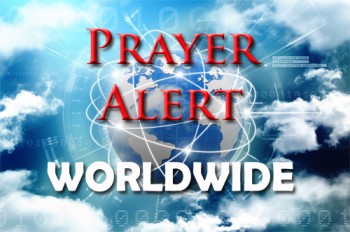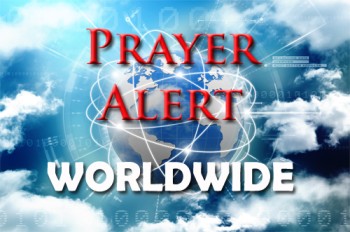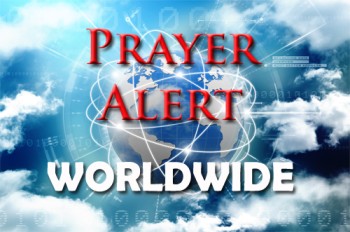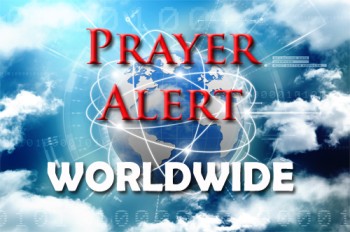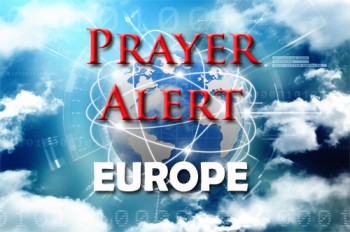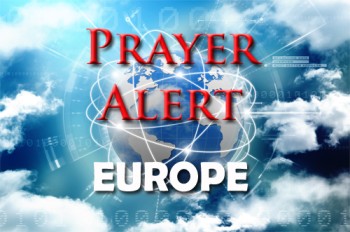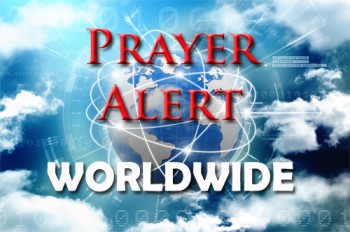Displaying items by tag: Election
Laos: another opposition activist killed
Amid growing concern over repression in Laos, another activist, Bao Mo Khaen, has been killed. Known for criticising the ruling Lao People’s Revolutionary Party online, he was reportedly detained by soldiers in Vientiane on 14 February, and his body was discovered beside a damaged motorbike six days later. His death follows other cases involving Lao dissidents in recent years, including enforced disappearances and attacks at home and abroad. Observers note that such incidents often coincide with politically sensitive periods such as the national election on 22 February. Laos remains a one-party state, and the election was conducted without opposition candidates. Economic pressures, rising debt and youth emigration have added to public discontent. Human rights advocates argue that the pattern of violence reflects efforts to silence dissent and instil fear. Authorities have not publicly provided detailed explanations regarding Khaen’s death, and concerns over accountability persist.
Many Londoners to vote tactically to stop Nigel Farage becoming PM
New YouGov polling suggests large numbers of Londoners are prepared to vote tactically at the next general election to prevent Nigel Farage becoming Prime Minister. The survey indicates that in several potential Reform UK versus Conservative contests, voters may shift support strategically rather than back their first-choice party. In Outer London seats, Conservative support appears significantly stronger when tactical voting is factored in, while Labour and Liberal Democrat backing falls sharply in head-to-head Reform-Tory scenarios. In Labour versus Reform contests, Labour maintains a clear lead, with Conservative support collapsing. Where Labour faces the Conservatives, Reform voters appear willing to switch to the Tories, while Lib Dem and Green supporters may lend votes to Labour. However, Green voters show less inclination toward tactical shifts. The findings challenge earlier projections suggesting Reform could secure major gains or even a Commons majority.
Peru: congress ousts president after four months
There is continuing political instability in Peru after congress removed interim president José Jerí only four months after he was appointed. Secret meetings with businessmen and allegations of influence-peddling triggered public outrage and a parliamentary vote of censure. His departure makes him the latest in a series of leaders forced from office in recent years, leaving citizens weary and distrustful of institutions; they long for transparent leadership which addresses corruption, crime, and social unrest. The frequent changes of government have disrupted long-term planning and weakened confidence in justice and security. The situation highlights how fragile governance affects everyday life, especially for the poor who depend most on stability. Congress will soon name a new interim president, who will serve only until a new president is chosen by the people in a general election in April.
Japan: prime minister’s social media led to her party’s landslide victory
Growing social media interest in prime minister Sanae Takaichi appears to have significantly influenced Japan’s lower house election on 8 February, contributing to a decisive victory for her Liberal Democratic Party. Many voters reported seeing daily clips of her speeches and travel despite chronic illness, creating familiarity and sympathy. Her personal X account gained far more followers than other party leaders, with spikes occurring even during controversy over a missed debate due to medical treatment. Supporters’ viral posts often countered criticism, amplifying positive perceptions. On YouTube, campaign-related videos featuring Takaichi attracted extraordinary engagement, including an advertisement viewed over 150 million times. Independent creators further boosted her visibility, producing most election-related content online. Exit polls showed nearly a quarter of voters relied primarily on social media when deciding how to vote, with strong shifts toward the ruling party among them. Online popularity appears to have translated directly into ballots cast.
Uganda: troops in Kampala and internet services banned before election
On 15 January Uganda headed into a tense election as Yoweri Museveni sought a seventh term as president after nearly four decades in power. The final days of campaigning have been marked by heavy military deployments in the capital, Kampala, and a government-ordered suspension of mobile internet services, measures which opposition figures say signal growing authoritarianism. Museveni’s main challenger, Bobi Wine, has drawn strong support from younger, urban voters frustrated by unemployment, corruption and limited political change. Security forces say their presence is intended to prevent violence, but rights groups are concerned about intimidation and force used against opposition supporters. While Museveni retains strong backing in rural regions and is expected to win, critics fear the process will lack credibility. The aging president's authority has become increasingly dependent on the military led by his controversial son, Muhoozi Kainerugaba. The election highlights deep divisions in Uganda, as many citizens long for peaceful transition, accountable leadership and hope for a more inclusive future.
Honduras: manual recount necessary for presidential election result
The Honduran presidential election has become increasingly tense after the National Electoral Council (CNE) announced a full manual recount of the 30 November vote. Currently there is a wafer-thin margin between the two leading candidates, which has prompted the CNE to announce a ‘technical tie’; it is calling for patience while all the votes are counted manually. Donald Trump sharply criticised the process on social media, accusing the authorities of attempting to alter the outcome and warning that there would be ‘hell to pay’ if his preferred candidate, Nasry Asfura, is not declared the winner. Asfura, a right-wing former mayor, held a lead of just over 500 votes with more than half of ballots counted. His centrist rival, Salvador Nasralla, cited internal projections suggesting he was ahead but refrained from claiming victory. Whatever the final outcome, the election is a clear defeat for the country’s ruling left-wing, whose candidate, Rixi Moncada, only has 19% of the vote.
Netherlands: winners and losers after election
The Netherlands’ latest election has upended expectations, signalling both renewal and deep division in Dutch politics. After two years of turmoil and paralysis, centrist liberal party D66, led by 38-year-old Rob Jetten, surged to an unprecedented victory, capturing 26 seats and dethroning the far-right PVV of Geert Wilders. Jetten’s optimistic, reform-minded campaign, focused on housing, education, and stability, resonated with voters weary of scandal and polarisation. Meanwhile, Christian Democrat leader Henri Bontenbal’s call for ‘decent politics’ also struck a chord, reviving his party’s fortunes. The left, however, suffered a major setback: Frans Timmermans’ GreenLeft-Labour alliance fell short, prompting his resignation. Though Wilders’ PVV lost eleven seats, he remains a potent opposition voice, vowing to continue disrupting from the sidelines. Coalition-building will now test Jetten’s leadership in a fragmented landscape, where bridging ideological divides may prove harder than winning the vote itself.
Czech Republic: former PM poised for comeback, faces difficult balancing act
Billionaire and former prime minister Andrej Babis is poised for a political comeback as his ANO party leads polls ahead of the October 3-4 elections. Having shifted from a liberal to a national-conservative position, Babis is promising voters financial relief and protection from external pressures such as immigration and climate policies. Yet his return to power would be fraught with complications. ANO is expected to fall short of a majority, forcing him to seek support from far-right or far-left allies who advocate leaving the EU and NATO – a stance at odds with his own pledge to remain. He also faces personal challenges, including a renewed fraud trial and a significant conflict of interest over his vast business empire, Agrofert, which receives significant EU subsidies. His alliances with figures like Hungary’s Viktor Orbán underscore his anti-Brussels stance, but navigating extremist demands while maintaining pro-Western ties may prove his toughest balancing act yet.
Moldova: president warns of Russian interference as elections near
Days before crucial parliamentary elections, Moldova’s president Maia Sandu has warned that Russian-backed plots are threatening her nation’s independence and European aspirations. Police have arrested 74 people accused of planning violent unrest, seizing weapons and explosives allegedly supplied through Russian training in Serbia. Sandu accused the Kremlin of pouring hundreds of millions of euros into Moldova to spread disinformation, buy votes, and intimidate pro-EU supporters, echoing past meddling during the 2022 EU-accession referendum which was narrowly approved by just 50.4%. Pro-Russian parties deny wrongdoing and claim Sandu is stifling opposition, while Moscow’s SVR intelligence agency countered with disinformation alleging European plans to falsify the vote and occupy Moldova. Sandu’s Party of Action and Solidarity faces stiff competition, especially in Russian-speaking regions like Gagauzia where many favour closer ties to Moscow. She is calling for high voter turnout, particularly from the diaspora, to safeguard the country’s sovereignty and keep its path toward EU membership.
Argentina: financial woes after Milei’s party loses badly in local elections
Argentina’s political and financial turbulence deepened after Javier Milei’s party suffered a heavy defeat to the Peronist opposition in key local elections. The peso tumbled to a historic low, sliding nearly 5 percent against the US dollar, while stocks and international bonds plunged sharply, sparking concerns over Argentina’s economic stability. Milei’s reform agenda, once hailed as a potential turning point, now faces major obstacles as midterm elections loom on 26 October. Markets fear the government may burn through reserves to defend the peso, undermining its IMF-backed programme and raising the risk of default. The Peronists’ wider-than-expected 13-point victory in Buenos Aires province highlighted Milei’s growing political challenges. These are compounded by corruption allegations involving his sister. Investor confidence, already shaken, has deteriorated further, with bonds and equities suffering their steepest losses since Argentina’s 2020 restructuring.
